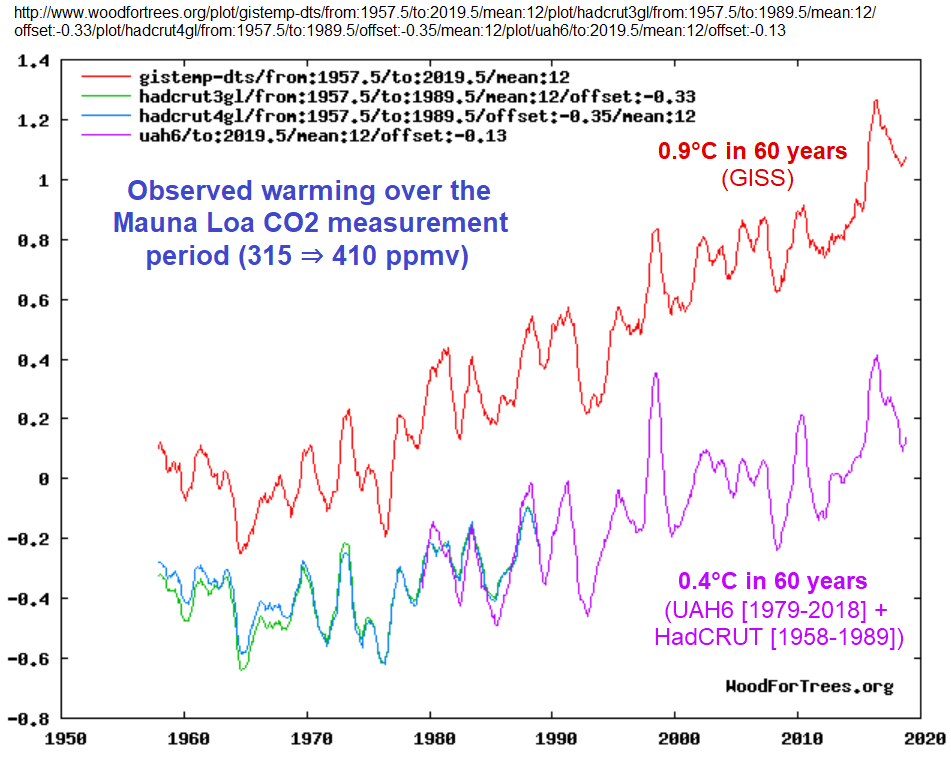Actually, CO2 does cause measurable warming. The warming effect is not huge, and not worrisome, but it is not zero, and it is large enough to be measurable.
There really is no question about the fact that the Earth's average temperature has warmed slightly, as CO2 levels have risen, over the last six decades. The magnitude of that change is debatable: different "global" composite temperature indices vary in their measured trend by approximately a factor of two. But none of them show zero trend.

The "climate sensitivity" of the Earth's temperatures to changes in CO2 level can be estimated by careful comparison of measured temperatures to measured CO2 levels. Here's an example on my web site, showing how that can be done:
https://sealevel.info/sensitivity.html
Climate change is a highly politicized issue, so, as is the case for any politicized issue, if you want to understand it you need to seek out balanced information. If you want to learn about the SCIENCE of climate change, instead of political spin, here's a list of resources which can help:
https://tinyurl.com/learnmore4
It has:
● accurate introductory climatology information
● in-depth science from BOTH skeptics & alarmists
● links to balanced debates between experts on BOTH sides
● information about climate impacts
● links to the best blogs on BOTH sides of the issue
